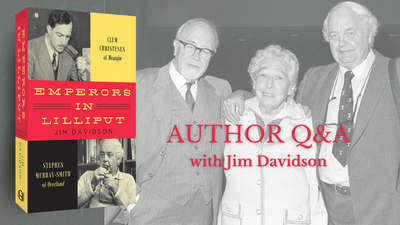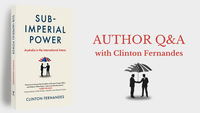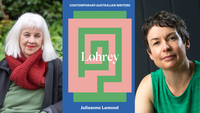Q & A with Jim Davidson—Author of Emperors in Lilliput

1. What was it like to work with Clem Christesen?
Not easy. His standards were very high—contributors always knew they would have to give their best. And he wasn’t much good at delegating. Even less at handing over to the successor he had appointed—see my wicked little chapter ‘Power Struggle in the Clemlin’.
2. Describe to us what it was like during your time as editor of Meanjin.
At the beginning, 1974-75, a time of great excitement. The Whitlam government was in power, taking Australia, after what Paul Keating calls the ‘Menzies torpor’, kicking and screaming into the twentieth century. There was an interest not only in Australian literature, but in the cultural past. All of this was reflected in publishing. Australia, which for so long had seemed marginal, to ITSELF as much as to the rest of the world, was at last a place where things were happening.
Gradually a chill spread across the cultural landscape after Malcolm Fraser came to power in 1975. But there were radical issues, and great energy in the women’s movement, which got into their stride in the late 1970s. This was reflected in the pages of Meanjin—it was important to take the magazine to the sources of energy. We also had a Papua New Guinea issue (timed to coincide with independence) and an Indigenous one (the first of any literary magazine).
3. Why do you think some magazines, like Meanjin and Overland, continue to thrive, while others cease publication?
Effective and imaginative editing is the first requirement. But substantial literary magazines, to have any continuity and regularity of appearance, require subsidy, from whatever source. Overland got going on a £15 anonymous donation—a weekly wage in those days. Generally subsidy may come from the Australia Council, but this can be subject to policy changes: cuts under the Morrison misgovernment were drastic. It can also come from institutions, but this too can be unreliable: Victoria University suddenly withdrew its support from Overland. It’s a tough world out there.
4. How has the world of publishing changed since your time as editor?
Vastly. My first issues were still in letterpress—the traditional method of printing. Publishers still did most things in-house. People still liked to settle down and read a physical book. But among many things, the internet has solved the problem of distribution—always difficult for minority interest publications, particularly poetry. (The poetry-reading public is small and unpredictably dispersed.)
5. What message do you wish to leave readers with by the end of the book?
Little magazines are necessary. Writers, someone said, are the early warning radar system of society—and many writers and ideas have appeared in little (or literary) magazines first. Even as they move over fully to the internet, there is still a powerful argument for their continuation. There remains a case for thoughtful material of all kinds being curated between a single set of ‘covers’, taking the temperature of the times. They’re also a place where experts can address the general reader—no bad thing in a time of increasing segmentation. Now that we’ve all been reduced to being subjects of the technoid-managerial complex, a pocket or two of resistance is no bad thing.
Moreover, we in Australia need to be much more aware of our past—partly to avoid making mistakes, and also to recognise that some contemporary problems – like Indigenous issues—come at us with a full head of steam. We are not just an ‘economy’, but a nation. Our history is always in the making. We simply cannot afford to lope along in a state of collective amnesia.



